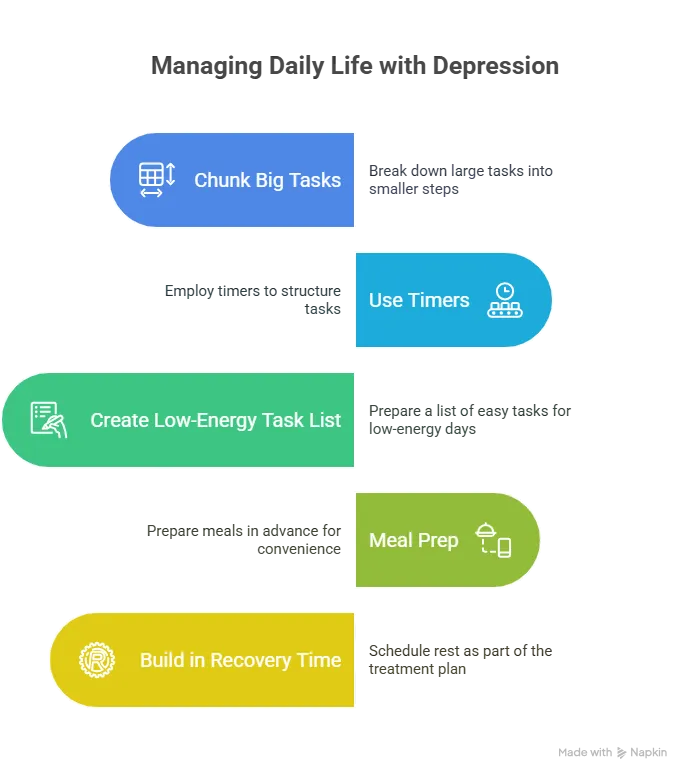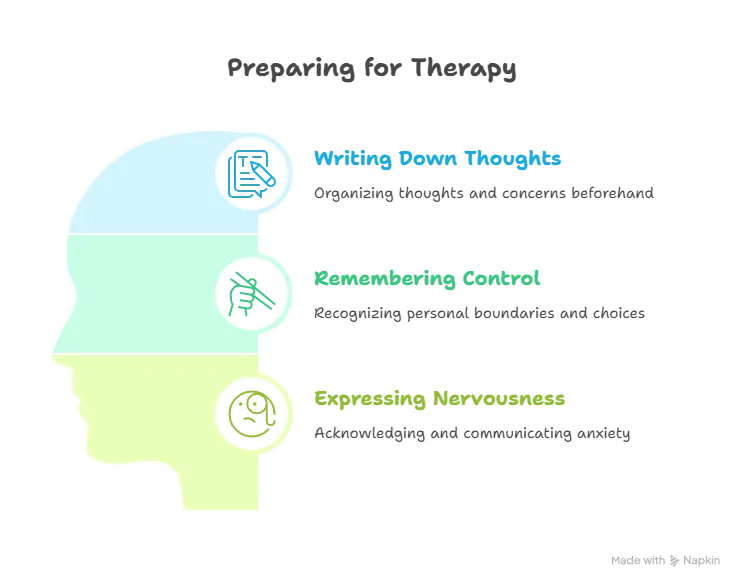From Fatigue to Focus: Managing Daily Life While Battling Depression
Depression doesn’t just affect your mood—it impacts every corner of daily life. From getting out of bed in the morning to completing basic tasks, depression can make even small responsibilities feel insurmountable. Fatigue, lack of motivation, difficulty concentrating, and emotional numbness often combine to create a sense of inertia that feeds the illness itself. But with structured strategies and compassionate support, it’s possible to regain control, one step at a time.
At Dalliance Therapy Center in Parker, CO, we approach depression treatment with a whole-person philosophy. That means we don’t just address your symptoms in-session—we also help you develop tools and routines that support your recovery between sessions. This blog post offers practical, sustainable guidance for navigating daily life while living with depression. Still unsure where to start? Learn more about deciding on the right treatment pathway for your symptoms.
Understanding Why Fatigue Hits So Hard
Fatigue in depression isn’t just “feeling tired.” It’s a pervasive exhaustion that drains your energy physically, emotionally, and mentally. You may wake up after eight hours of sleep still feeling unrefreshed. Simple tasks like brushing your teeth, returning texts, or preparing meals can feel like climbing a mountain. This is due in part to how depression alters brain chemistry—especially neurotransmitters like serotonin and dopamine, which regulate motivation, reward, and energy levels.
Many people blame themselves for this fatigue, believing it’s laziness or lack of willpower. In reality, it’s a physiological part of the illness. That’s why treating it requires both therapeutic support and day-to-day strategies for managing your energy wisely.

The Importance of Routine and Gentle Structure
Creating structure is one of the most effective ways to combat the unpredictability of depression. When motivation fails, routine can step in. But this doesn’t mean you need a perfect morning ritual or a rigid schedule. In fact, flexibility and self-compassion are key.
Start by anchoring your day around two or three non-negotiable habits. This might include waking up at a consistent time, eating one nutritious meal, or going for a five-minute walk outside. These small commitments restore a sense of agency and create momentum.
Tactical Tips for Managing Daily Functioning
When depression dulls your focus or energy, even basic activities can feel overwhelming. That’s why we encourage clients to use techniques that simplify choices and reduce mental strain.
Here are a few lifestyle strategies you can try:
- Chunk big tasks into small, manageable steps. Instead of “clean the house,” start with “put dishes in the sink.”
- Use timers to structure tasks. Try the Pomodoro technique—25 minutes of activity followed by a 5-minute break.
- Create a “low-energy” task list for days when functioning is hard: folding laundry, listening to music, or sending one email.
- Meal prep on better days. Having easy-to-reach snacks and meals on hand can reduce the burden of decision-making when your energy dips.
- Build in recovery time. Rest is not a reward—it’s part of your treatment plan.
These techniques don’t just promote productivity—they affirm your worth and autonomy in the face of a disorder that tries to take both away.
The Role of Movement and Sleep
Movement and sleep hygiene are two of the most impactful lifestyle factors for depression recovery. Regular physical activity—especially gentle movement like walking or stretching—can improve mood, enhance cognitive function, and even increase the efficacy of therapy or medication.
Likewise, sleep plays a critical role in regulating emotional resilience. At Dalliance, we often help clients build custom sleep routines that support rest and minimize nighttime rumination. This may include limiting screen time before bed, setting a consistent bedtime, and incorporating calming rituals like journaling or guided breathing.
How Therapy Supports Lifestyle Change
The tools above are more effective when practiced in tandem with therapy. At Dalliance Therapy Center, our therapists help clients create personalized action plans that fit their unique energy patterns, responsibilities, and mental health history. Whether you’re implementing CBT strategies, building emotional regulation skills, or simply trying to reconnect with everyday life, therapy provides the structure, accountability, and encouragement to keep going—even when it’s hard.
You Don’t Have to Do It All Today
Recovery from depression isn’t linear. Some days will feel easier than others, and that’s okay. What matters is not perfection, but persistence. By integrating small, intentional choices into your day, you can begin to shift from fatigue to focus—and from surviving to rebuilding.
If you’re ready to take the next step toward structured, whole-person healing, we invite you to schedule a free consultation at Dalliance Therapy Center in Parker, CO. You don’t have to do this alone. We’re here to help.



